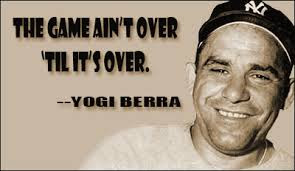My circle of friends and family have been mourning the premature and altogether tragic death of a good and honorable man. Terry Read, just 57 years old, was struck and killed by an automobile while walking his dog near his home in Los Angeles. He and his wife, Linda, serve as full-time ministers in the Community of Christ, a small denomination with international headquarters in Independence, Missouri. Together with their daughter, Andrea, they are a remarkable family committed to their faith, to community service, and to each other.
Terry was a giant of a man, hovering over almost anyone he encountered, but carrying the most humble and gentle spirit imaginable. He spoke softly, listened intently, and touched tenderly. He was tenacious and yet considerate on a basketball court, quickly lending a hand to those he knocked over, couldn't help himself, graciously apologizing. He is one of those people about whom one never hears a bad word. Truly.
This reflection is not intended as a tribute to Terry or his family, although I could write into the night about their lives and accomplishments. There are already many hundreds of those on their Facebook pages, soon rippling into the thousands, demonstrating the constellation of relationships that grace their lives. There one will also find the remarkable words of his beloved wife, Linda, and their wonderful daughter, Andrea. They are each embodying what Henri Nouwen called the "wounded healer," distilling from their grief words of hope and redemption that comfort others.
 |
| Terry, Andrea, and Linda Read |
 When I write it down like that it sounds like a petulant third-grader with a lower lip curled out declaring the world to be unfair because their little brother got a bigger scoop of ice cream. And I suppose in the grand scheme of things, my cry for justice is about as shallow as that, although it didn't seem so at the time the telephone call pierced the night with the horrible news.
When I write it down like that it sounds like a petulant third-grader with a lower lip curled out declaring the world to be unfair because their little brother got a bigger scoop of ice cream. And I suppose in the grand scheme of things, my cry for justice is about as shallow as that, although it didn't seem so at the time the telephone call pierced the night with the horrible news.Terry is not letting go of me. I am haunted by the fact we share the same birthday, although not the same birth year. Photographs of him are popping up everywhere and they speak to me of his life, not his death. I hear his voice, I remember conversations we had at camps and retreats, walks in a nearby neighborhood when he came to town, projects we worked on together, some going back decades. The other day while I was looking up some things about Terry, I came across a letter he and Linda wrote me several years ago at a particularly needful time. It touched my heart then, and now, over a decade later, it touched me again as if he was beside me, arm over my shoulder, speaking those words of love and support.
It may sound like we were the closest of friends, inseparable. But that is not so. I'm sure there are hundreds of people who would speak this way. Terry had only friends; there were no enemies.
That's where love comes in. When you give it out, it comes back. It is not just that it survives, it thrives. Given my initial soul-sobbing, fist-pounding, death-denying, love-ignoring response to this tragedy, you can imagine my surprise at reading the hundreds and hundreds of responses from family and friends who saw only love, who looked at it the way Terry would have seen it, not with anger or questions or despair, but with gratitude for this gentle man and with love for the community that embraces him. It was as he had been taught and as he had taught.
I should have known. I do know. I guess I just forgot for a while. None of this is to take away the profound sadness, the terrible hurt, the numbing sense of loss. But already, those are being overcome by a family choosing to be healers, knowing that the healer will also be healed.
"Oh death, where is thy sting?" That question is posed in I Corinthians 15:55, and is answered by Terry Read and by those who love him. And here is the answer: "Death, you came up against love, and you lose."
Love wins. Every time.
Rest in peace, Terry Read, awash in the love of those who have been loved by you, and assured that your wonderful family will be enveloped in the love you saved up for them. Stay with us awhile and you will see.






































